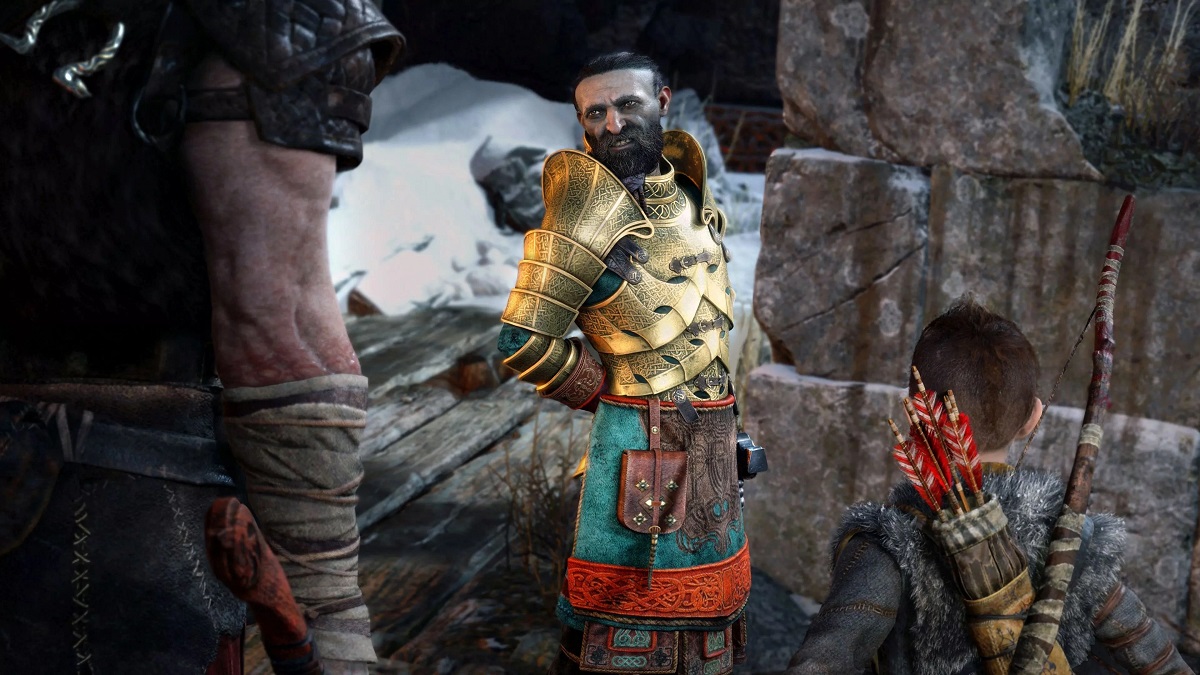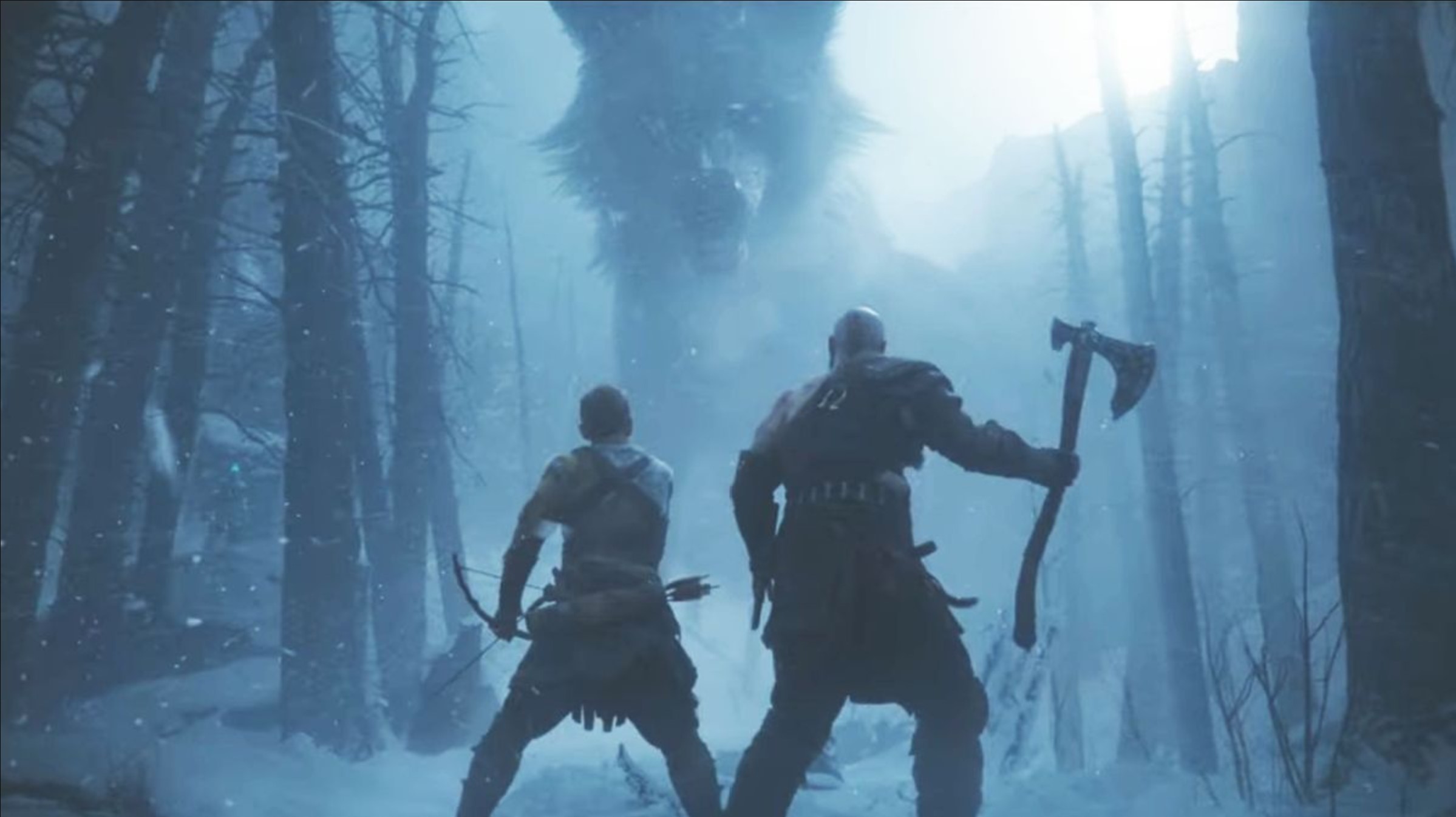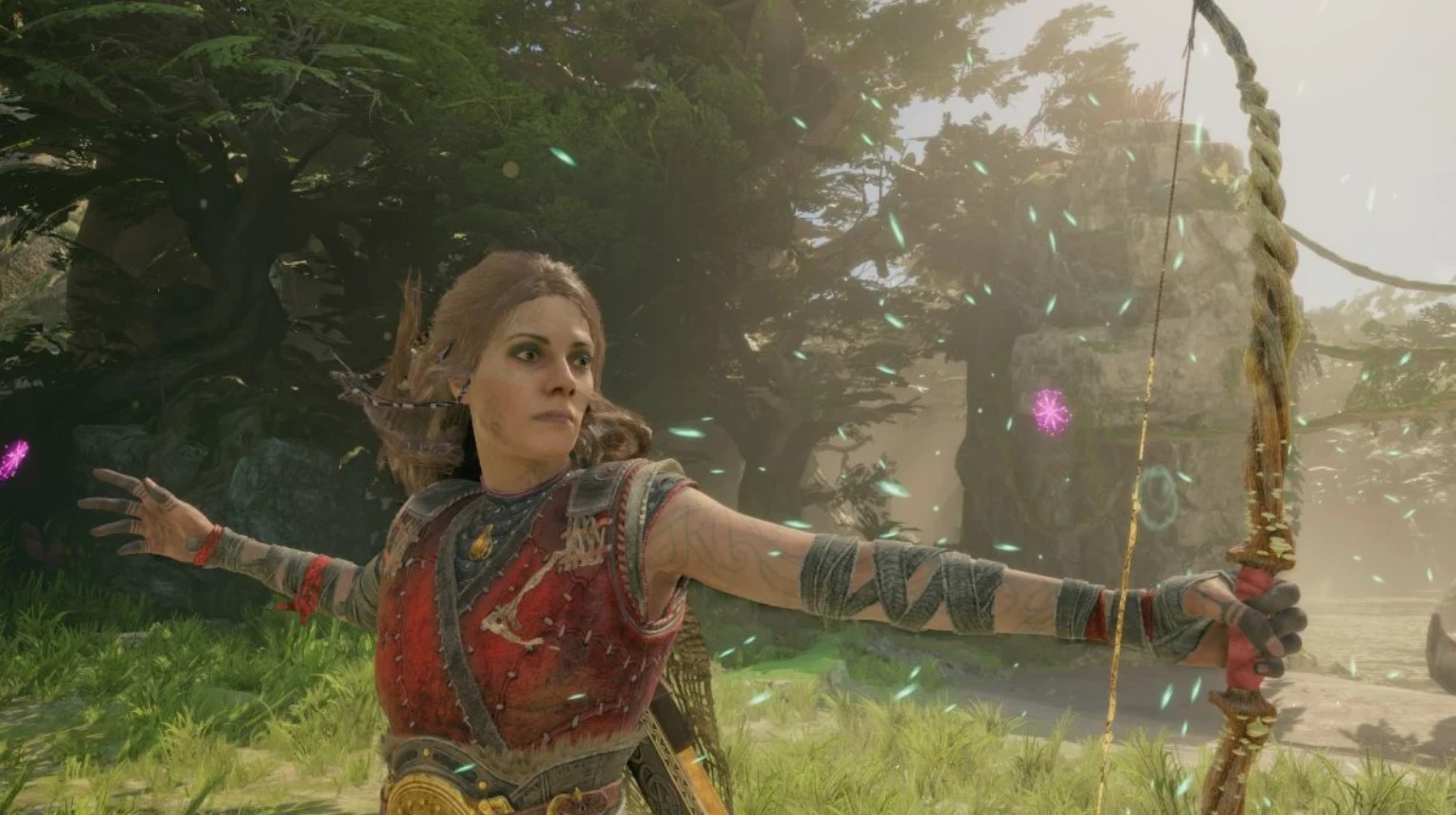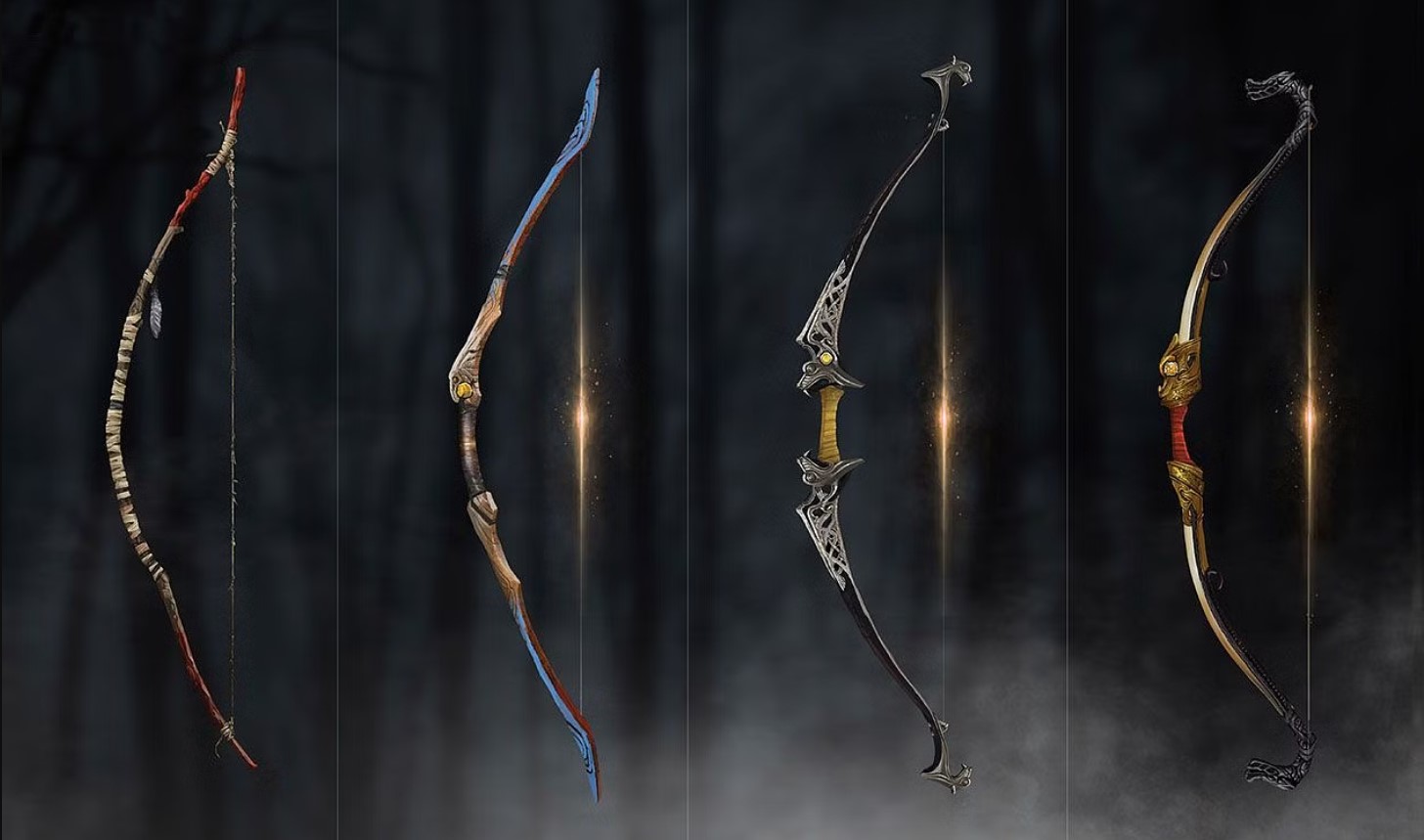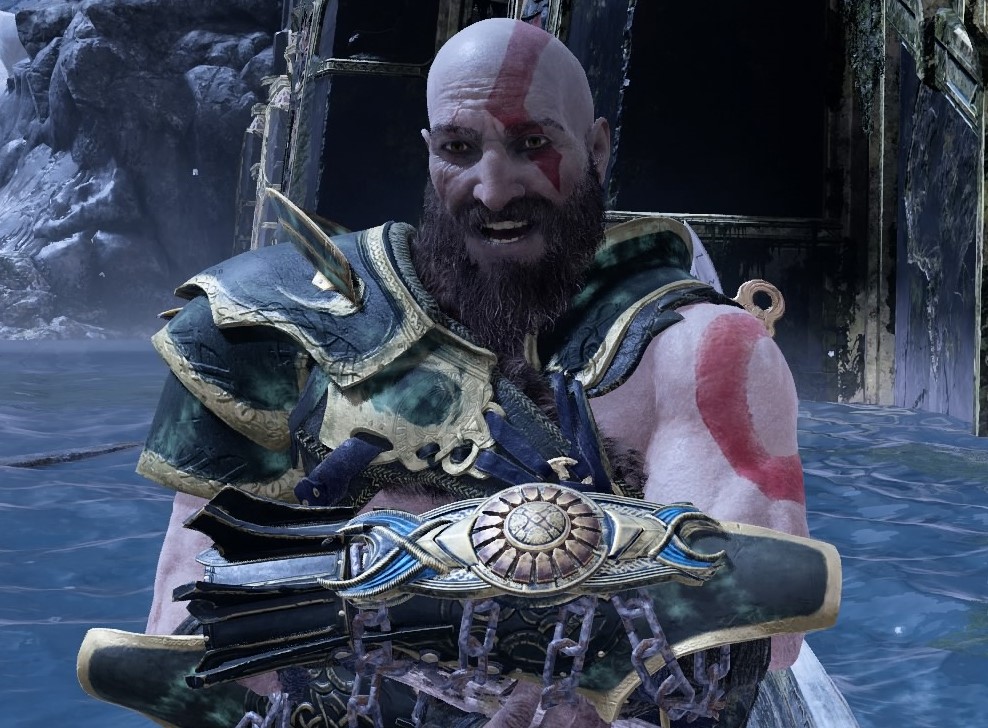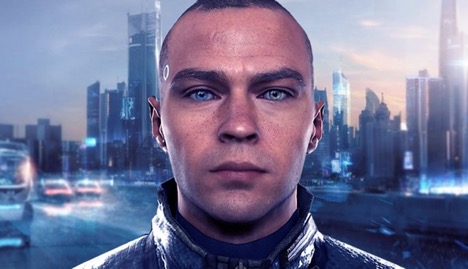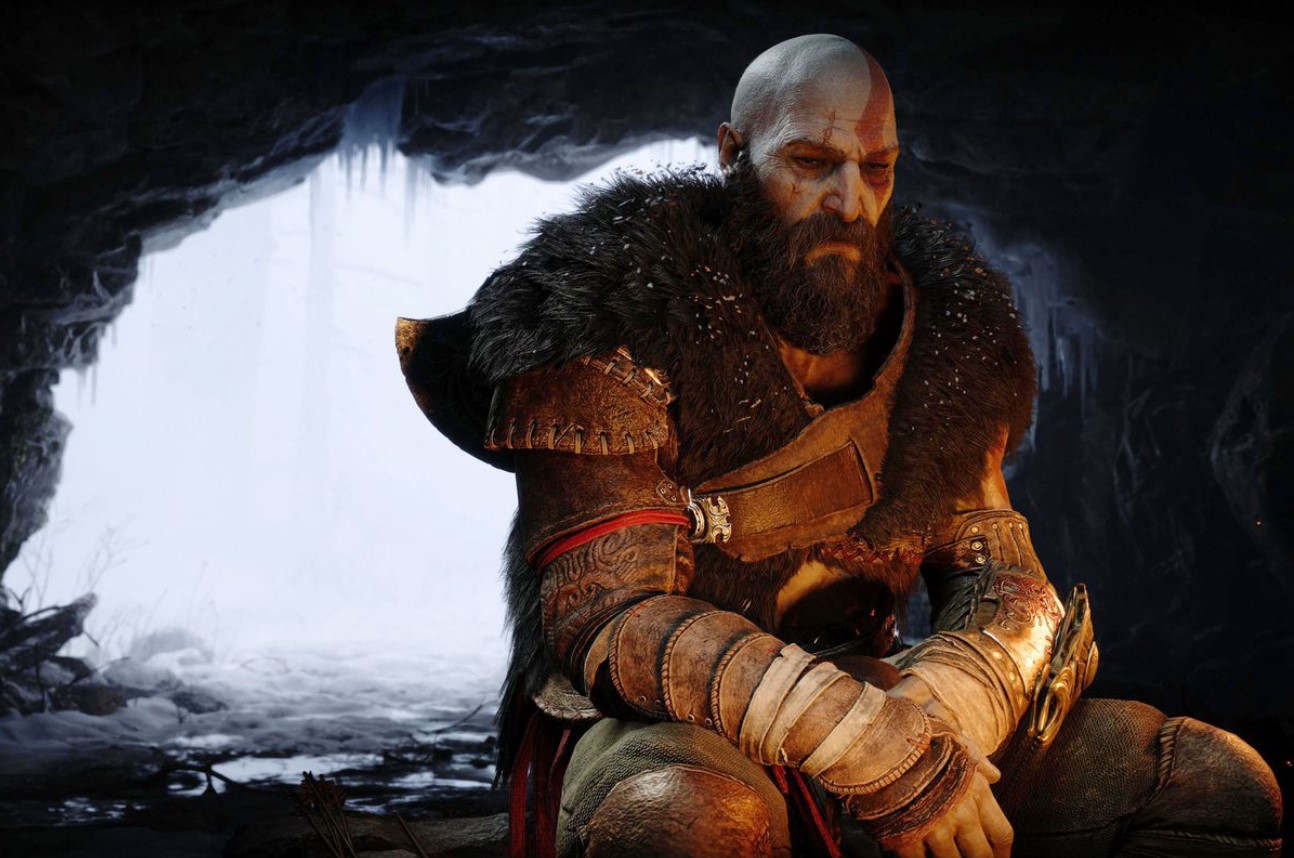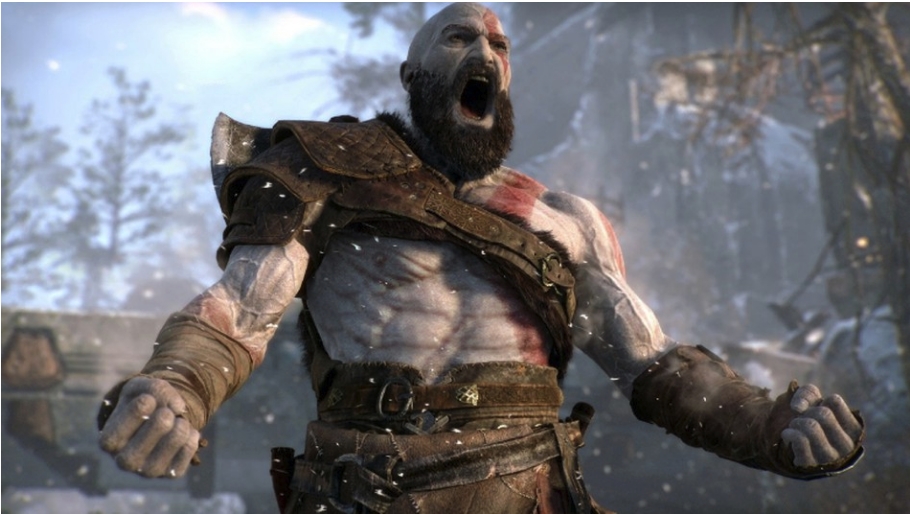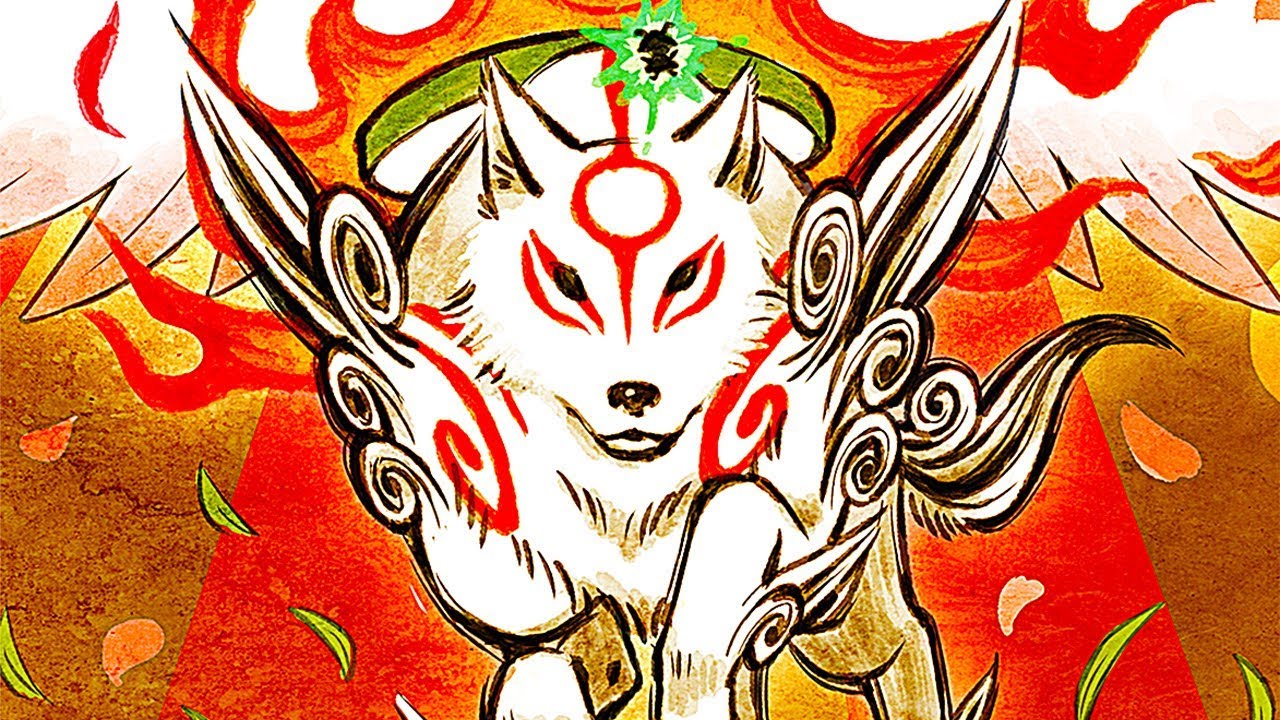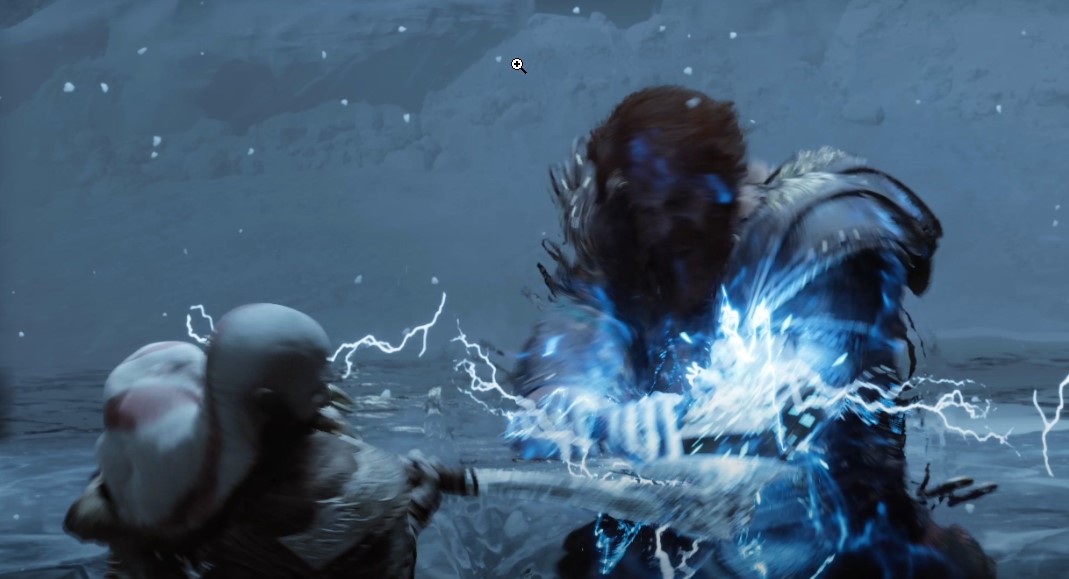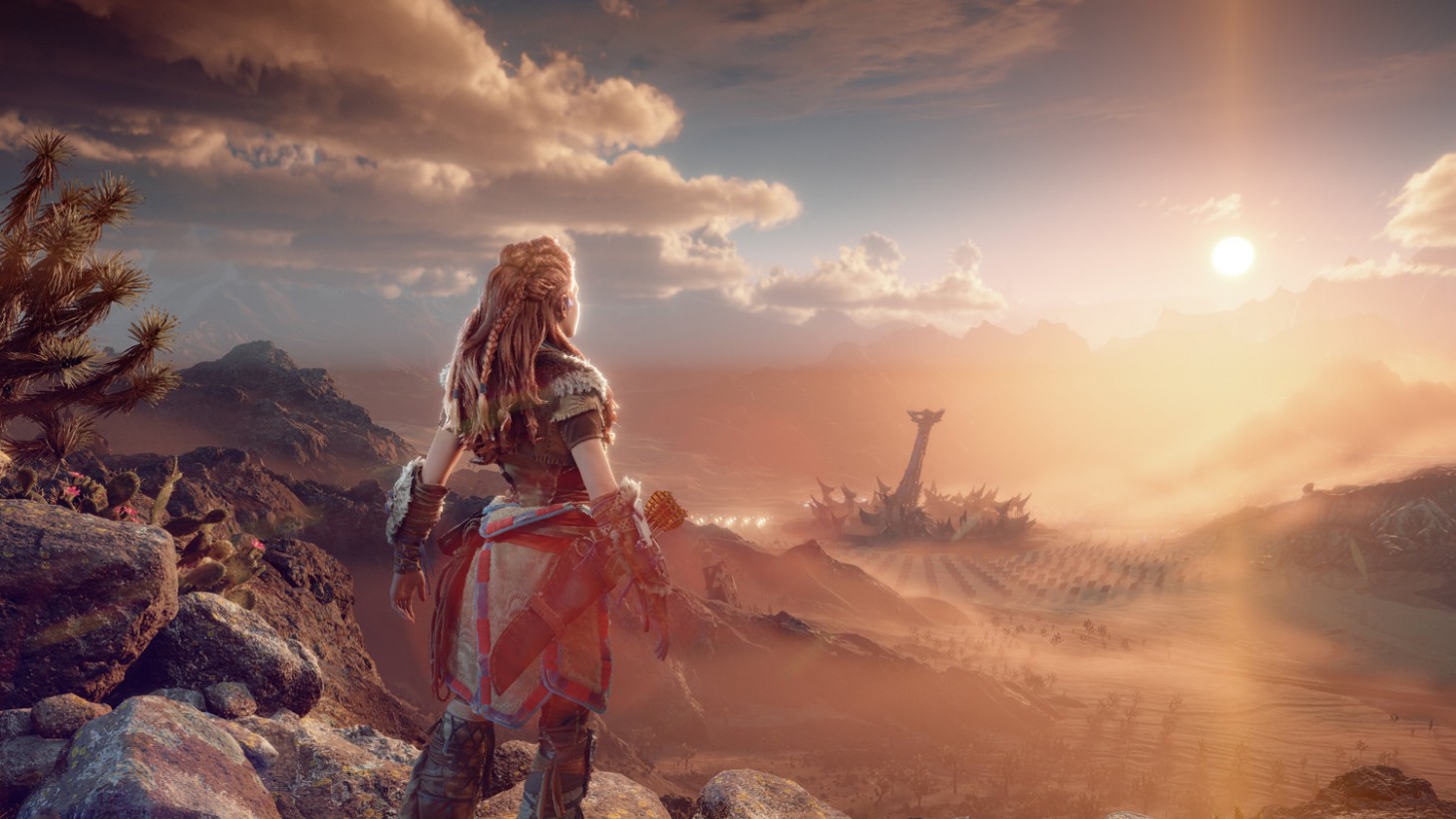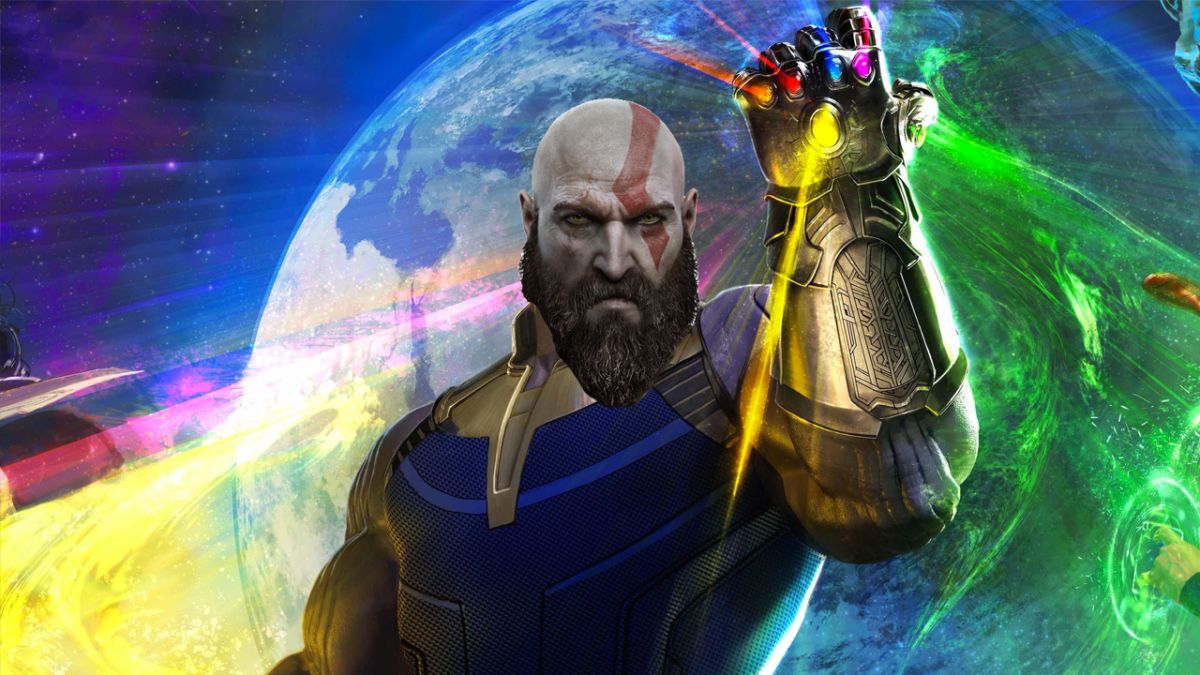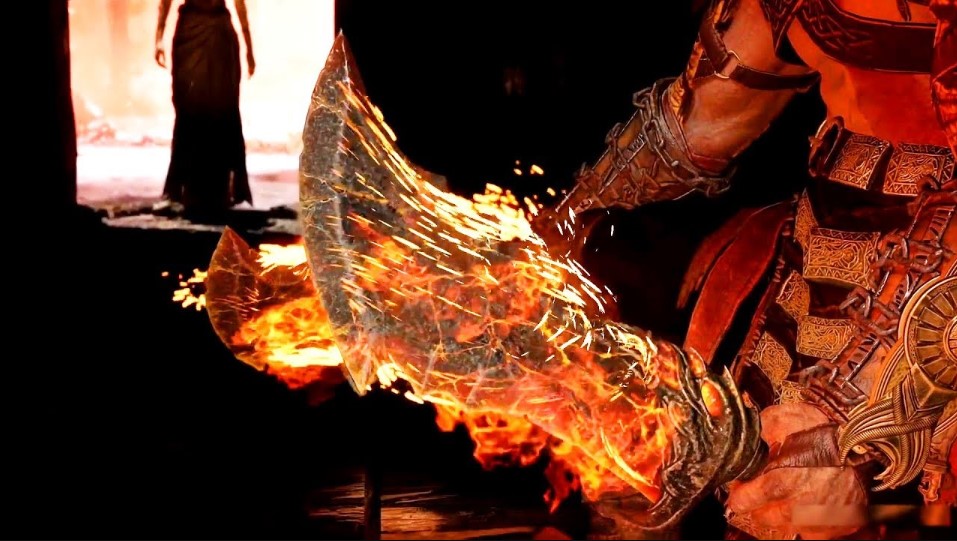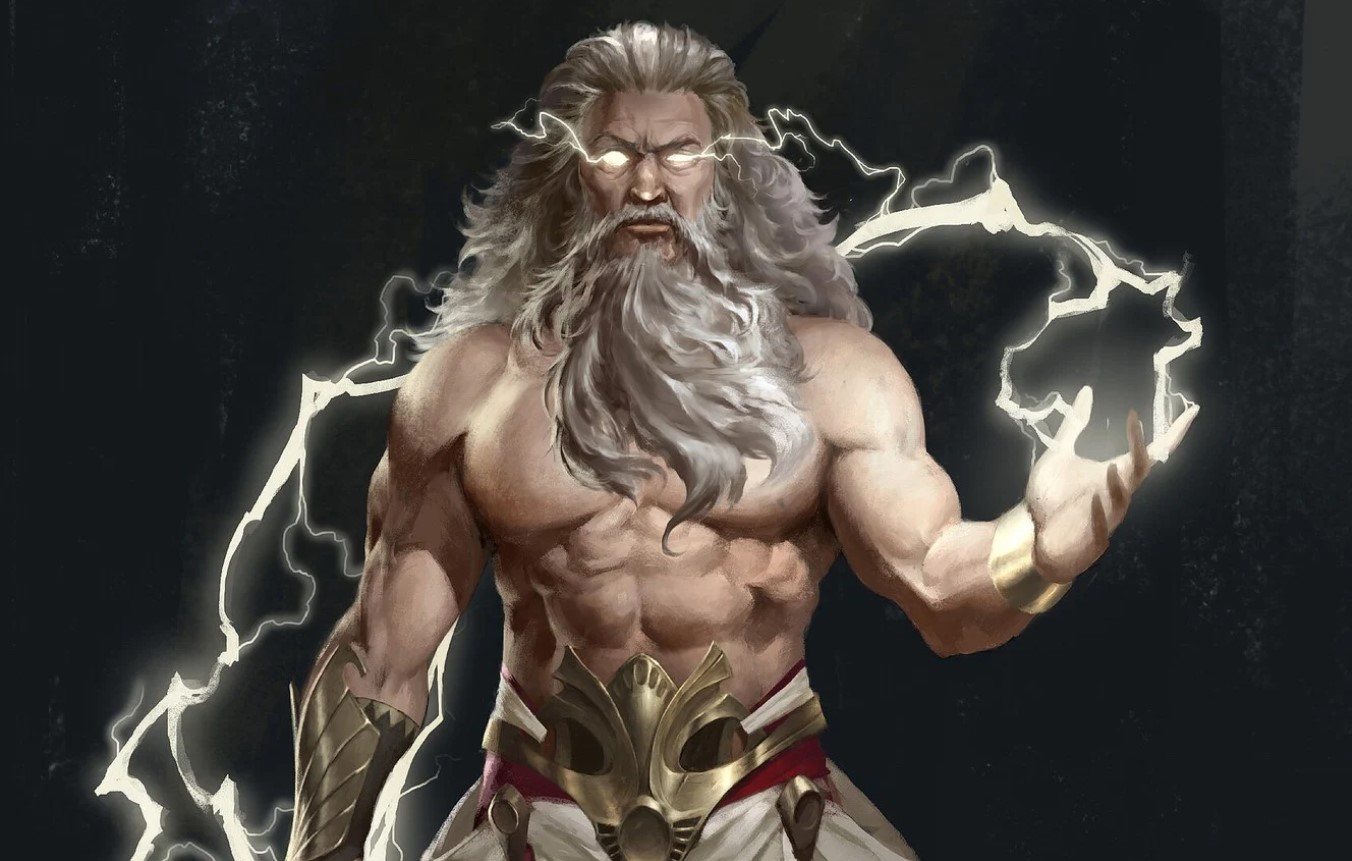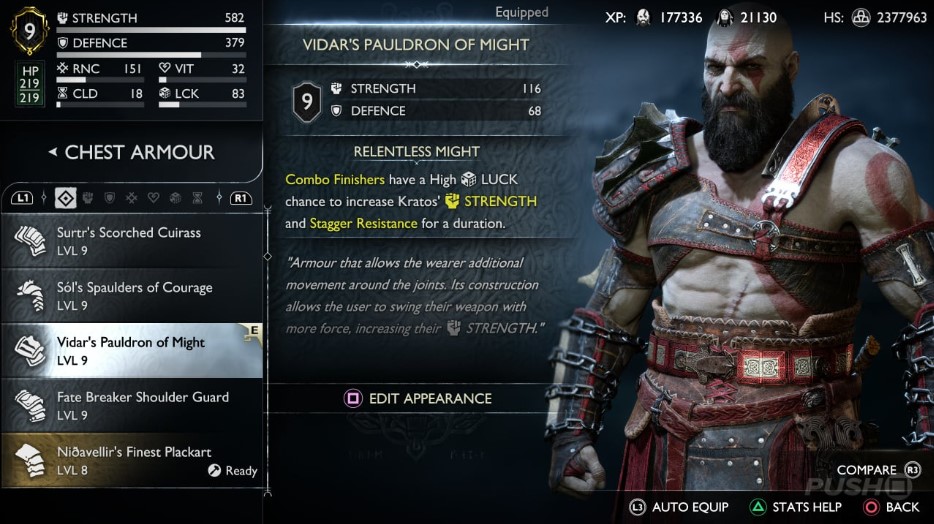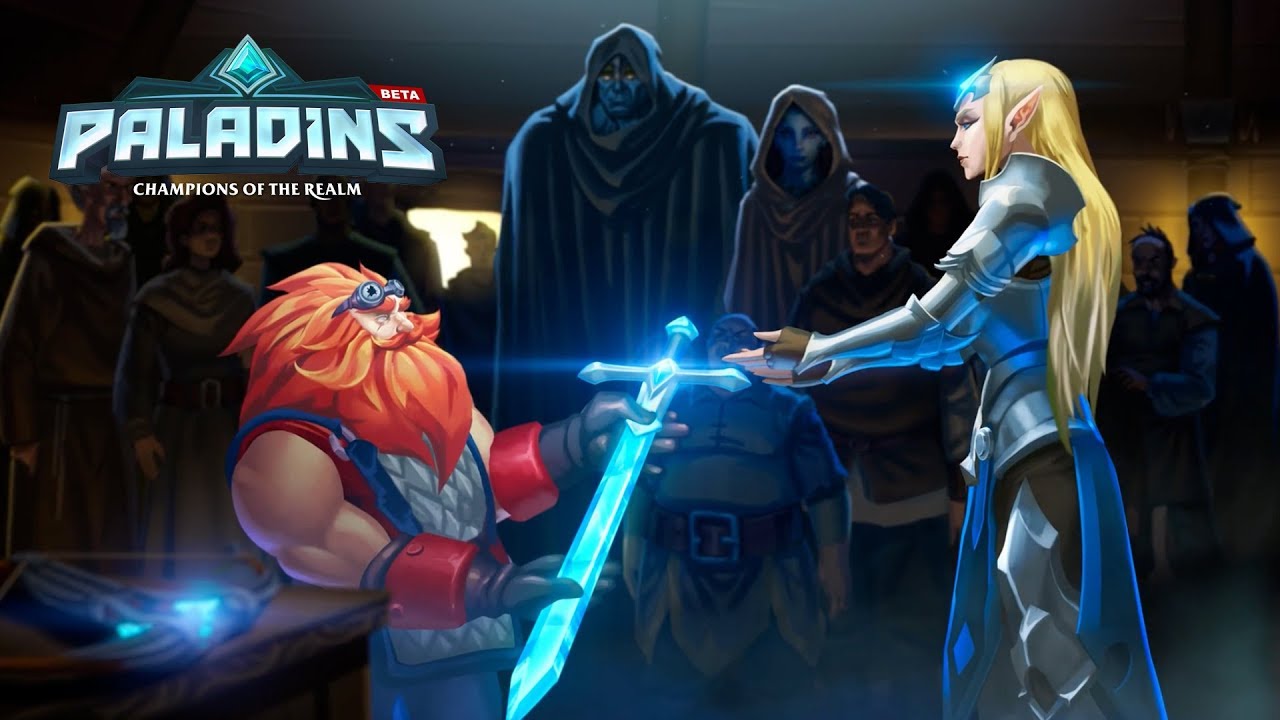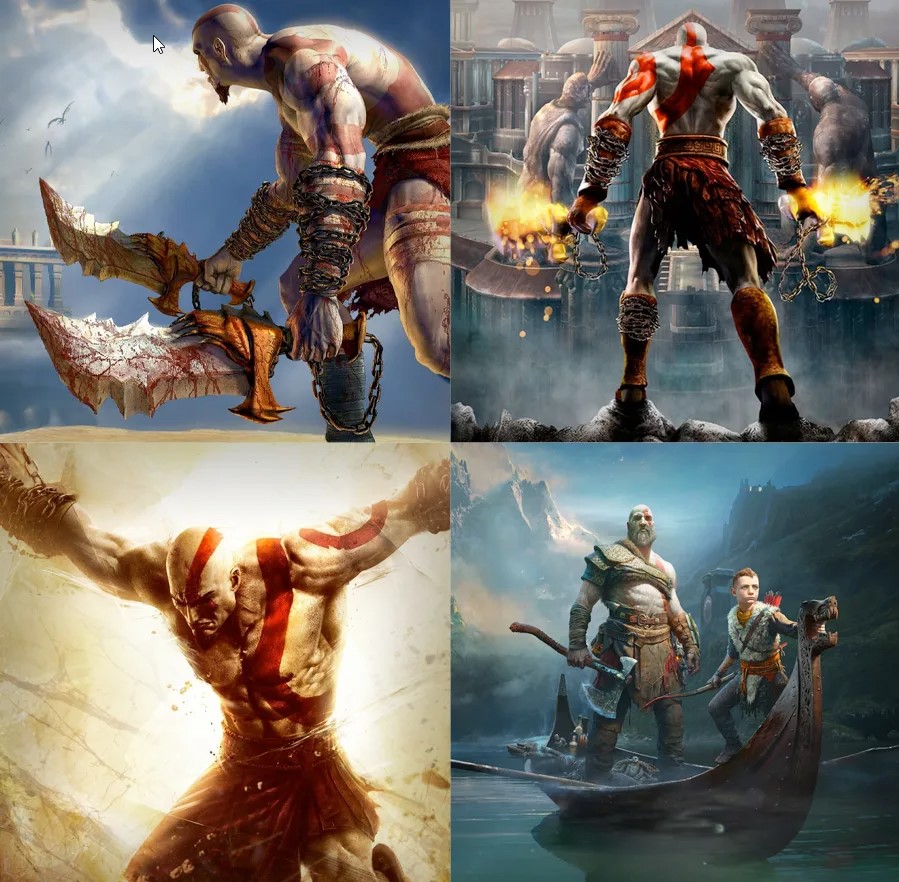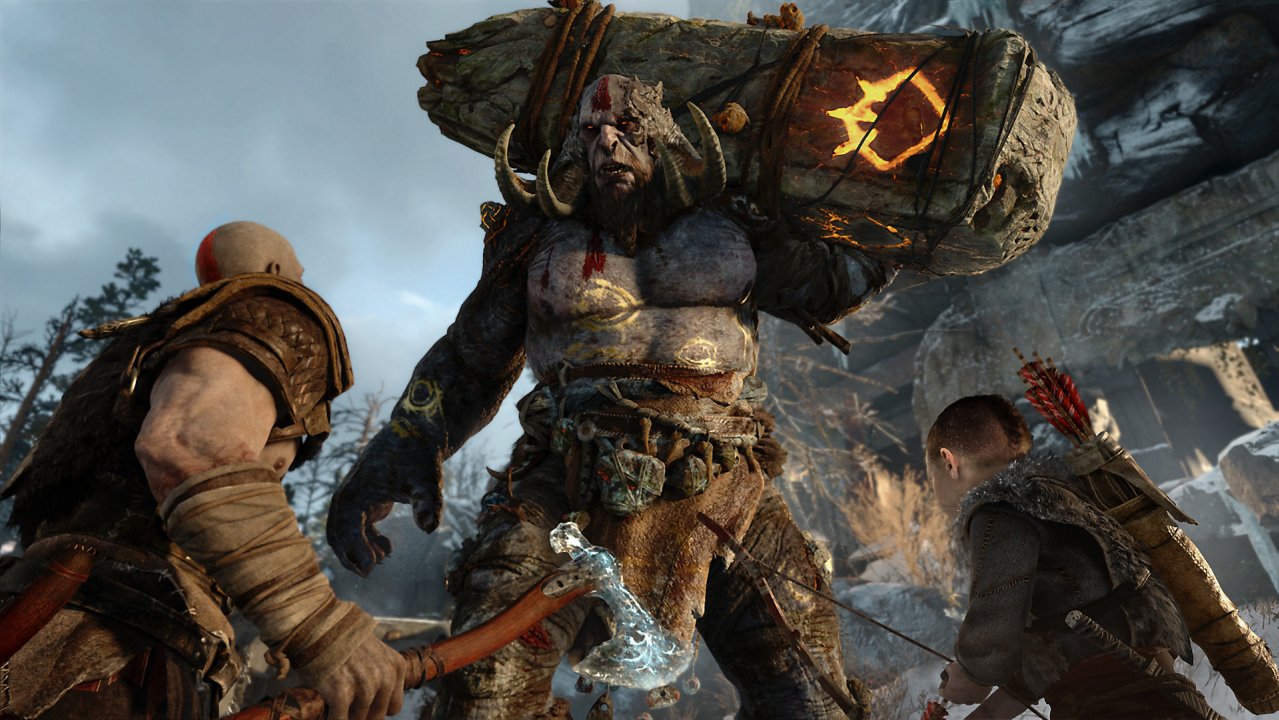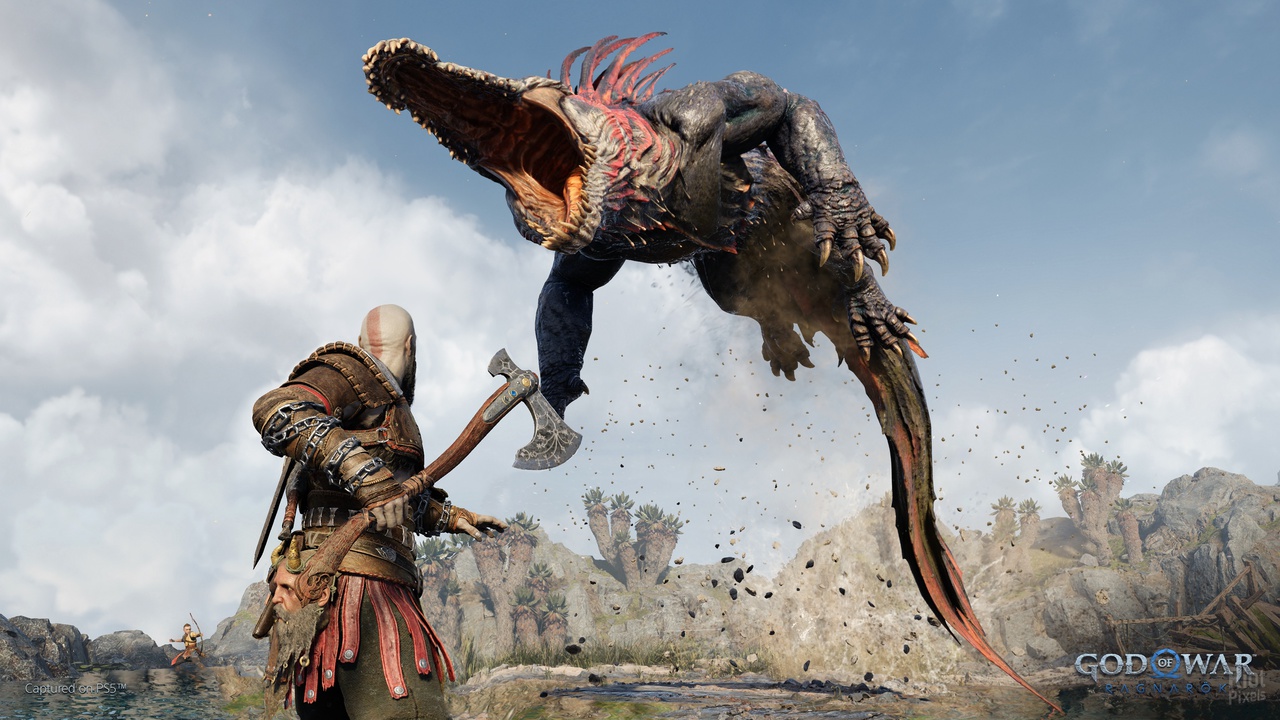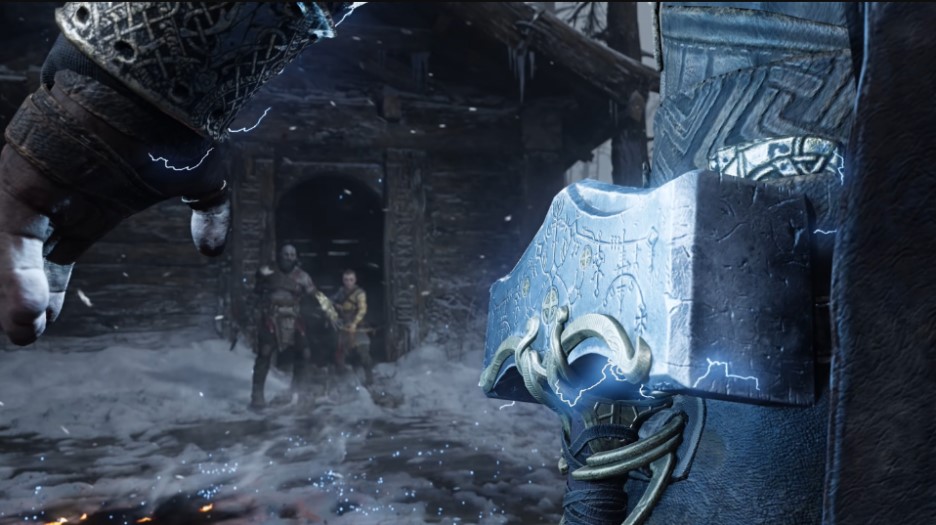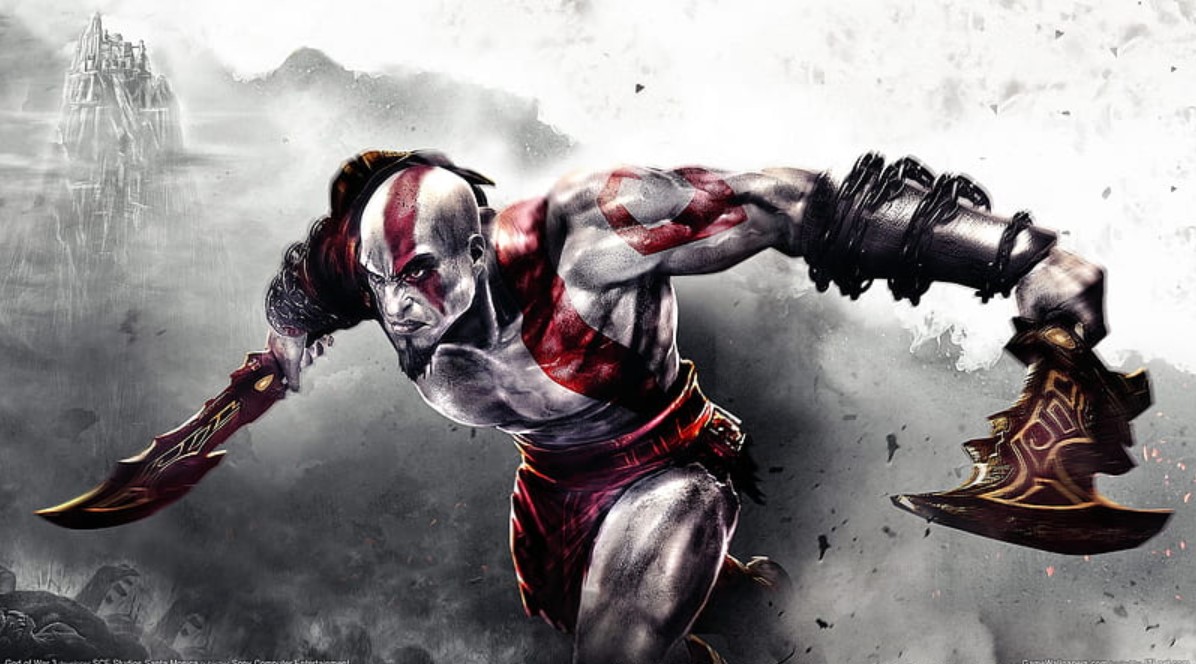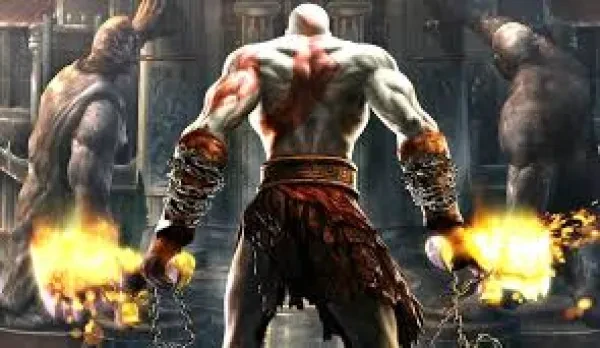
Kratos has been a PlayStation mainstay since the conclusion of the PS2's lifecycle, meaning this character is a part of four platform lives now. And with the uproar of delight that God of War 2018 delivered for fans, there has never been a better opportunity to dig into Kratos' finest moments in his lengthy gaming career.
He's murdered gods, befriended others, and shown his mettle against a broad array of opponents. But regrettably, he's also created a lengthy list of enemies and performed deeds he can never redeem himself from, a magnificent example of the flawed protagonist. Let’s check out some of the best God Of War moments of all time!
15. Atreus Kills Modi
Almost immediately after Zeus reveals his divinity to his son, Atreus starts developing into a very horrible kid. He starts acting out violently, disrespecting Sindri and picking fights with everybody who gets in his way. Kratos and Atreus find a hurt and embarrassed Modi. Even after killing his brother Magni, Kratos's son stabs Modi in the neck. We were taken aback by this since Atreus had previously shown respect for the divine. We were, needless to say, not fond of the boy's new attitude.
14. Encountering the World Serpent
If ever there was a moment that embodied the new "God of War," it was this one. When we first visit the Lakes of Nine, Jrmungandr, commonly known as "the World Serpent," is there to meet us. The girth of the snake realistically represents how expansive "God of War" is and how lengthy your adventure will go. You must also admire the incredible attention to detail in his design and animation.
13. Kratos Versus Poseidon
Regarding large-scale combat, God of War 3 was jam-packed with them, beginning with Kratos facing off against Poseidon, the god of the sea. Prior to the PlayStation 3 era, fans were excited to see what developers could accomplish with far more powerful technology, and the opening scene of the game made it plain that the finale of the original trilogy would be quite a thrill.
Kratos soars into the air and strikes Poseidon's numerous watery appendages with dizzying speed. The battle culminates in a particularly horrible beating of the deity after it has been piecemeal destroyed. Kratos kills Poseidon by beating him to death and then gouging out his eyes for good measure. Players see the whole scenario through Poseidon's point of view, simulating the terror of being on the receiving end of Kratos' anger.
12. Initial Conflict with Baldur
It would not be "God of War" without gods engaging in combat with mankind. So, when we heard a knock at the door, we met Baldur, or "the Stranger," as he is first referred to. This was "God of War's" method of demonstrating how vicious and grandiose the game would be: very violent and extremely epic. In addition, this was a fantastic way to reacquaint us to the Spartan Rage mechanism! Everyone who opposes us will feel our Spartan Superman fists! Except for Baldur, who is unable to feel anything.
11. Bringing back the Blades of Chaos
Who panicked when Kratos said, "Then I must return home?"? We ALL knew what Kratos would get. Kratos contemplates on the route he's going to return to while Athena makes a cameo appearance, all of which culminates in the return of God of War's famous weapons. Never before has it been so gratifying to see these weapons slashing and slashing our enemies. The highlight? Kratos used the same moves as in prior games. Prior to release, several fans feared that the new game would discard the elements that made the first trilogy enjoyable. It is reasonable to assume that this encounter allayed many of those anxieties.
10. Gaia Revealed
Beginning God of War II, Kratos is almost killed after being betrayed by Zeus and impaled by the Blade of Olympus. At this point, the female narrator states, "I could not allow his death." This scene involves the unexpected revelation that the voice narrating both God of War and God of War II has been the titan Gaia the whole time, and she has a plan.
9. Kratos Versus The Colossus
God of War 2's opening battle pits Kratos against the Colossus and serves as the PS2's farewell song in early 2007. Kratos steadily chisels away at the Colossus, an immense statue given to life by Zeus' sorcery. The fight lasts for a considerable length of time, destroying the city around the battlefield. Kratos is ultimately triumphant, but only after imbuing the Blade of Olympus with his divine abilities.
The battle's tempo and scope are flawless, and it's unquestionably astounding that it's all operating on a PlayStation 2. The first God of War game was regarded at the time as the pinnacle of that console's technological capabilities, but the opening minutes of the sequel absolutely eclipse them in just minutes.
8. Atreus’ Real Name
There were quite a few moments when “God of War” misled us into believing the journey was finished. Kratos and Atreus encounter a fresco depicting the Ghost of Sparta and his son, during which Atreus makes a surprising discovery: "The giants called me Loki?" We completely did not anticipate this. Sony Santa Monica had left a lot of signs about Atreus's identity, such as his fighting abilities and a piece of conversation. This is the most stunning aspect of the situation. We can't help but think the "Avengers" remark may have also been a clue...
7. Kratos and His Daughter Were Reunited
As stated before, Kratos's past is marked by sorrow and profound personal loss. Kratos is a deeply injured soul who longs to be reunited with his family, despite his bluster and brute might. Kratos faces the Queen of the Underworld at the Temple of Persephone during the last moments of the PSP adventure God of War: Chains of Olympus, and she gives the Spartan an option.
Either he can give up his power and be reunited with his daughter (at the expense of humanity's misery) or he may continue his quest to defeat the Underworld Queen. As much as Kratos wants to be with his daughter, he realizes that he must continue his task and, regrettably, sacrifices his opportunity to be with her again in order to eliminate a greater menace.
6. Killing Ares
Ares, the final boss of the original God of War, is the guy Kratos has been pursuing this whole time due to a broken promise made by the God. As with many of the deities in the series, Ares underestimates those they consider unworthy, which proves to be a poor decision as Kratos proceeds to destroy him in the next conflict.
As Ares attempts and fails to control Kratos, the battle takes place across numerous rooms, interspersed with brief sequences. At the conclusion, Kratos delivers the fatal blow by thrusting his sword through Ares's chest.
5. Brothers Join Forces
In the second God of War PSP game, Ghost of Sparta, Kratos undertakes a deeply personal quest to locate his long-thought-deceased brother. In quest of his long-lost brother, Deimos, Kratos enters the Underworld and engages in combat with demonic beings. Years ago, the gods of Olympus were informed of a prophecy stating that a marked warrior would bring about their doom. Mistaking this warrior for Deimos rather than Kratos, the gods imprisoned him for life.
Deimos had spent his whole existence hating Kratos, but near the finale he decides to forgive him in order to destroy Thanatos, the god of death, together. Their reunion is a moment of victory, but it is tragically followed by tragedy, as Deimos does not survive the fight, making Kratos even more resentful of the God of Olympus.
4. Learning To Work With And Have Faith In Freya
Upon seeing Freya for the first time, Kratos goes into full father mode, placing Atreus' safety above all else. By the conclusion of God of War 2018, he even gains Freya's confidence and collaborates with her. Given all the Gods Kratos has encountered and how few have helped him, it is obvious why he is so reluctant to allow others in. In contrast to occasions in the past when our protagonist was deceived, Kratos is now the one who betrays someone.
3. Facing Sigrun After Defeating the Valkyries
The first time you encounter a Valkyrie and try to defeat it, you will likely be vastly outmatched. While you can never be fully powerful enough to make a battle easy, you may prepare and train with all the resources available. Releasing the Valkyries is one of the possible favors in the game, and after doing so, you must beat Sigrun, the Valkyrie Queen.
2. Cronos Fight
Typical video game levels consist of static locales such as caverns, castles, and cities. Cronos demonstrates in God of War III that a level may be a living, hostile giant. In this battle, the cinematic camerawork takes center stage, vividly expressing Cronos' immense stature by reducing Kratos to a small dot on his skin. The excitement of climbing a mammoth and avoiding its assaults is surpassed only by the joy of hacking it to pieces.
1. "I Am Your Monster No Longer"
God of War was hailed as one of the best gaming efforts of 2018, garnering many accolades and nominations at year's end. For such a critical darling, the game contains plenty of memorable moments, including multiple sequences with Atreus and references to Kratos' background. During a critical plot point, Kratos's new interpretation combines the finest of the original games with this new understanding of the character.
Conclusion
God of War, released in 2018, established itself as one of the finest gaming experiences in recent memory. Not simply because of its fighting and world-building, but also because of Kratos' transformation from a mass-murdering machine to prime father material. It was a story of mythological proportions from beginning to finish, more than deserving of the worldwide accolades it received. This was further shown by its Game of the Year award at the Game Awards. However, given these circumstances, it's not shocking! I hope you enjoyed going through this list.
You may also be interested in:
[Top 10] God of War 4 Best Builds That Are Powerful
God of War Story Explained (Everything You Need To Know)
God of War Best Stats To Upgrade [Best and Worst Stats Revealed]
All God of War Bosses [How To Defeat Each God of War Boss]


